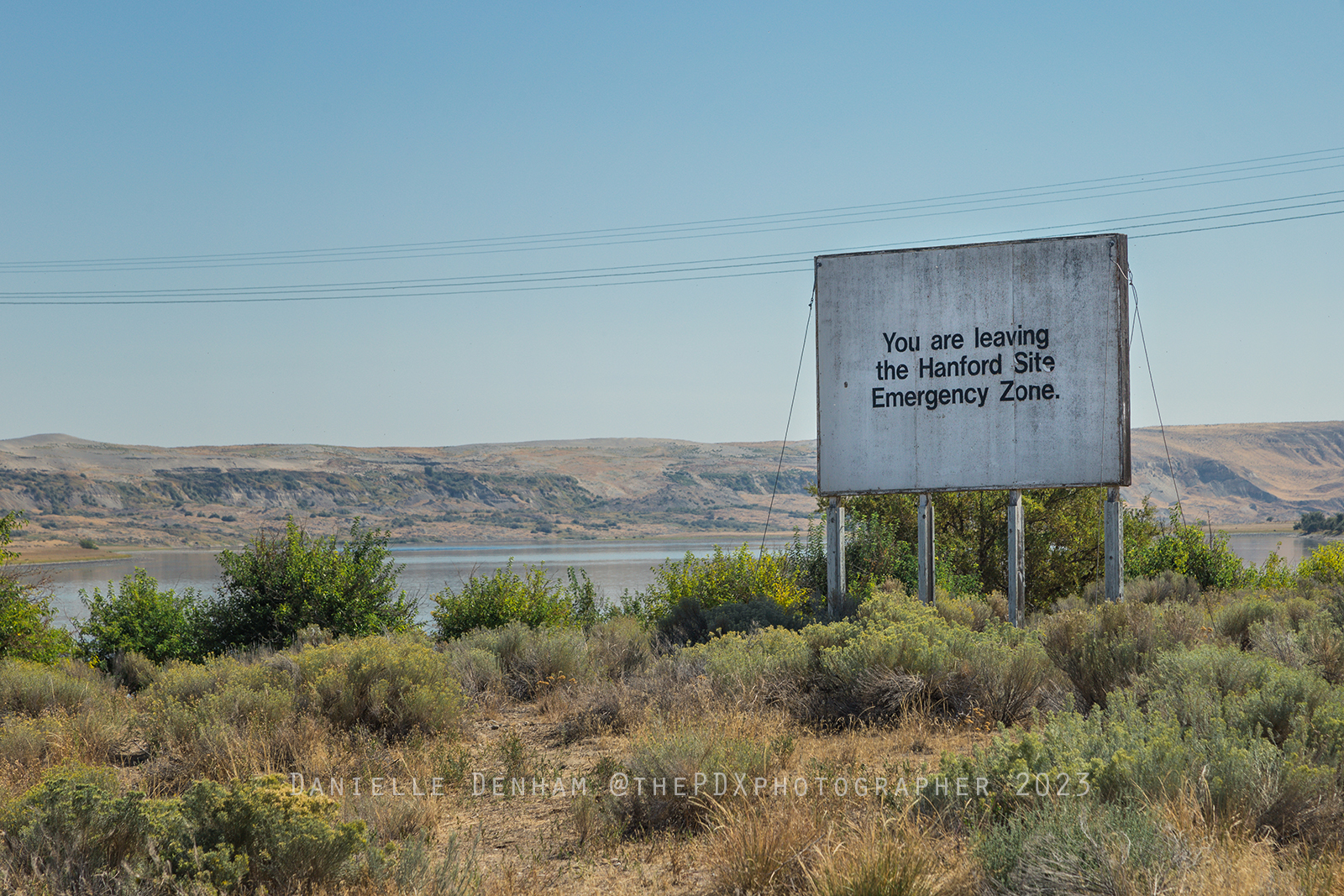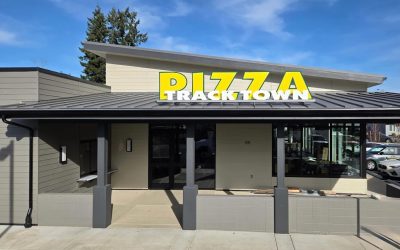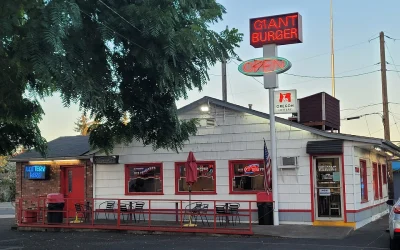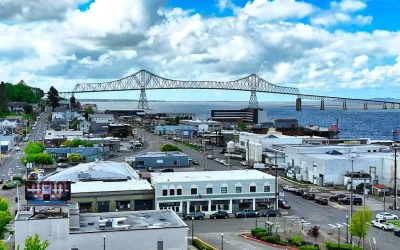Amazon has announced a partnership with Energy Northwest and X-energy to build four new nuclear reactors near Richland, Washington, aiming to power its growing AI models. This project will rely on Small Modular Reactors (SMRs), a modern nuclear technology considered smaller and more flexible than traditional nuclear plants. While the plan has received support as a step toward a more sustainable energy infrastructure, it has sparked controversy among residents, environmental advocates, and industry experts.
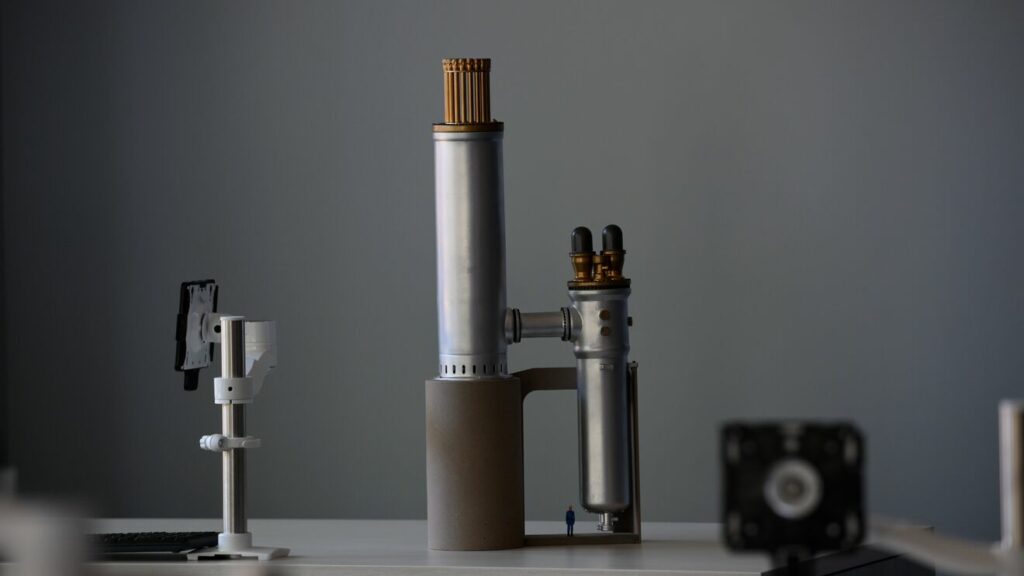
The project currently lacks finalized permits, but it already has the support of lawmakers, including Governor Jay Inslee. Energy Northwest, a coalition of 28 utilities, remains optimistic that these reactors will help meet Washington's growing power needs.
Why Richland, Washington?
Richland, located in southeastern Washington and close to the Columbia River, has long been home to nuclear projects. The city hosts the Columbia Generating Station, Washington’s only commercial nuclear power plant. Richland is also near the Hanford Site, a historic nuclear production complex established during World War II to produce plutonium. Though inactive since the late 1980s, the Hanford Site remains one of the most toxic nuclear cleanup locations in the U.S., with ongoing environmental remediation.
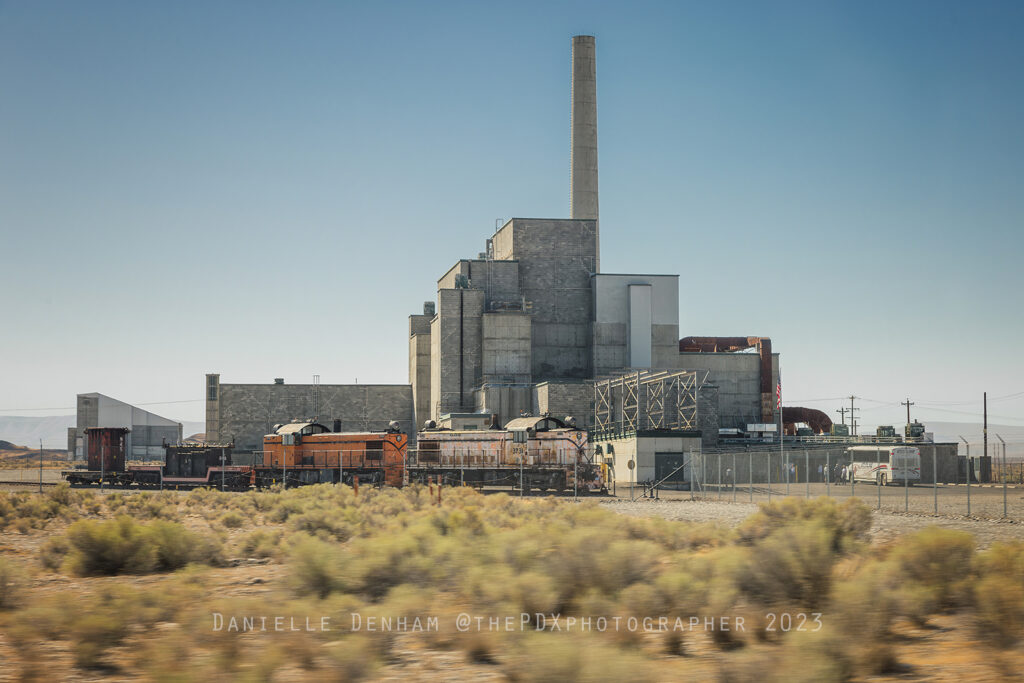
Situated along the Columbia River, Richland is strategically positioned for energy projects. Its proximity to both Oregon and major rivers has historically made it a choice for power infrastructure, yet this proximity also raises concerns among communities downstream. The Columbia River flows southward along the Oregon-Washington border, putting Oregon communities at potential risk if any environmental issues arise from the project.
The Demand: Powering AI
Amazon's investment in nuclear power is driven by its energy-intensive AI models, which require large-scale, reliable, and consistent electricity. Nuclear energy is considered by some to be a prime solution due to its high energy output and lack of direct carbon emissions. Unlike fossil fuels, nuclear power does not release CO₂ during operation, aligning with Amazon’s commitment to reduce its carbon footprint and reach net-zero emissions by 2040.
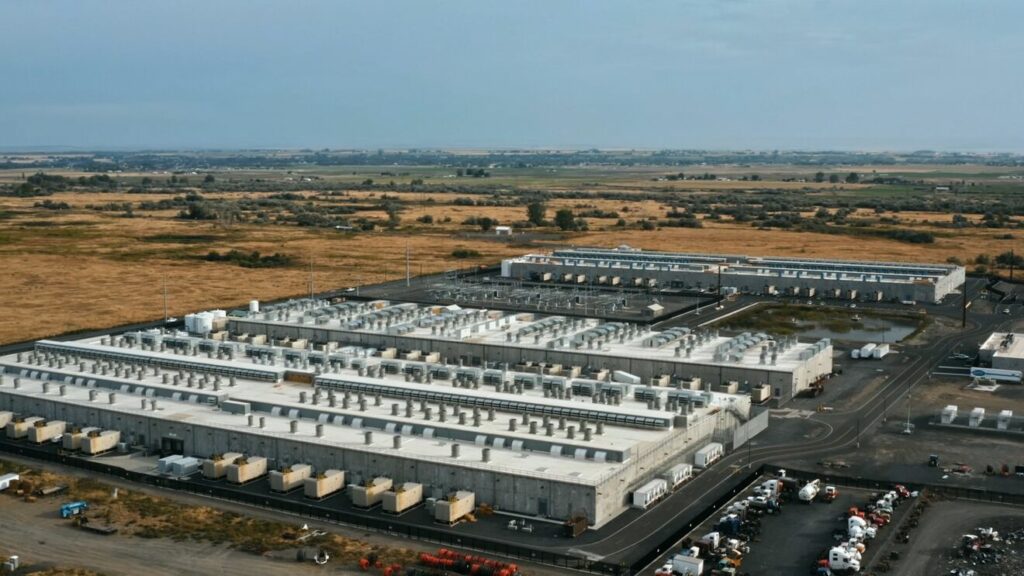
Benefits of Nuclear Power for the Region
- Low Carbon Emissions: Nuclear power produces minimal CO₂ during operation, contributing to climate change mitigation efforts.
- Reliable Energy: Unlike solar or wind power, nuclear plants can operate continuously, making them an appealing choice for powering AI infrastructure, which needs consistent electricity.
- Economic Boost: The construction and operation of these reactors are expected to create jobs and stimulate the local economy.
Concerns and Controversies
- Safety Risks: Although SMRs are designed to be safer than older nuclear reactors, concerns about potential nuclear accidents remain. Any malfunction could have catastrophic consequences, especially given Richland’s proximity to the Columbia River and the state of Oregon downstream.
- Environmental Impact: Local communities worry about the risk of radioactive contamination and its effects on agriculture, water sources, and public health. Proximity to the Columbia River also raises concerns about potential contamination reaching Oregon’s ecosystems.
- Hanford Legacy: Many in Washington and Oregon are wary of new nuclear projects given the region’s experience with the Hanford Site, where decades of contamination have left significant cleanup challenges. The presence of new nuclear infrastructure could compound these fears.
Washington’s Energy Crisis
Washington State has experienced increasing energy demands, with renewables alone unable to meet the projected needs in the next few decades. The state's transition away from coal and natural gas has increased pressure to find sustainable, high-output energy sources. Nuclear power is presented as a viable option to help bridge this energy gap, especially in light of the state’s ambitious carbon reduction goals.
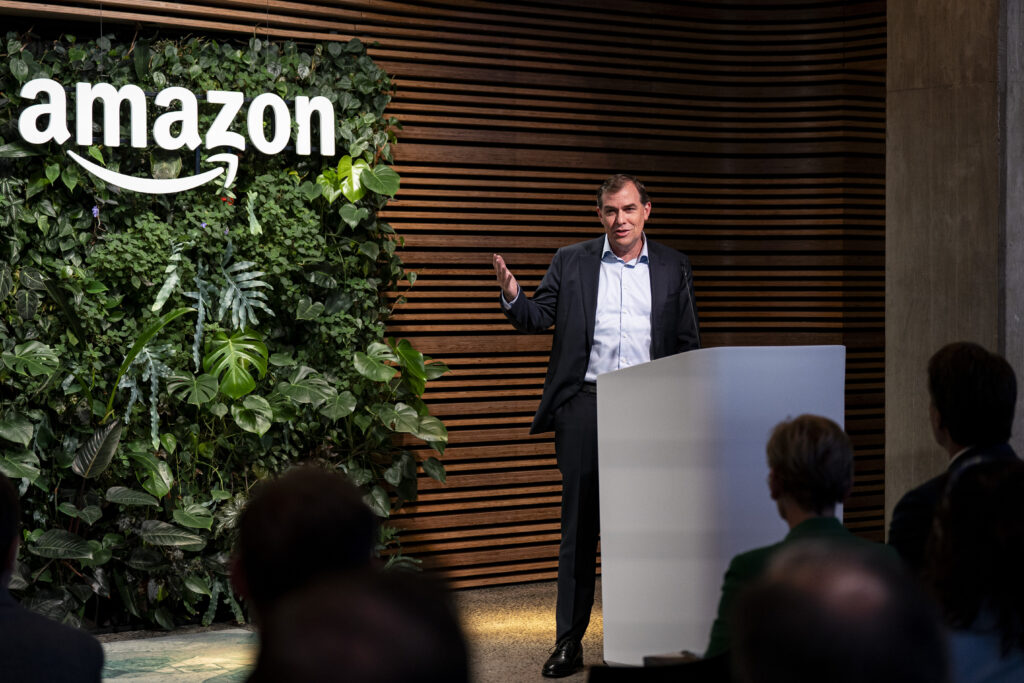
Says Kurt Miller, Executive Director of the Northwest Public Power Association, "One of the greatest concerns for community-owned electric utilities is having access to reliable sources of electricity that fulfill carbon-free energy mandates. Advanced nuclear fits the bill. This bold partnership between Energy Northwest and Amazon will help pave the way for additional nuclear development in our region and represents a critical step toward achieving a clean and dependable electric grid."
Lawmakers and utility companies are predicting a power supply crisis in Washington state within the next five years, as the energy demands of major corporations like Amazon, Microsoft, and Google have grown at an unexpectedly rapid pace.
Effects on Indigenous Communities
"Nuclear kills," says Leona Morgan, an indigenous organizer who spoke at a panel hosted by Columbia Riverkeeper. "Nuclear is killing my people. Nuclear is what we call 'a slow genocide.’” Morgan highlighted the health impacts that she and other indigenous communities endure from radioactive contamination on their lands, especially on the Navajo Nation, which has over 2,000 abandoned uranium mines.
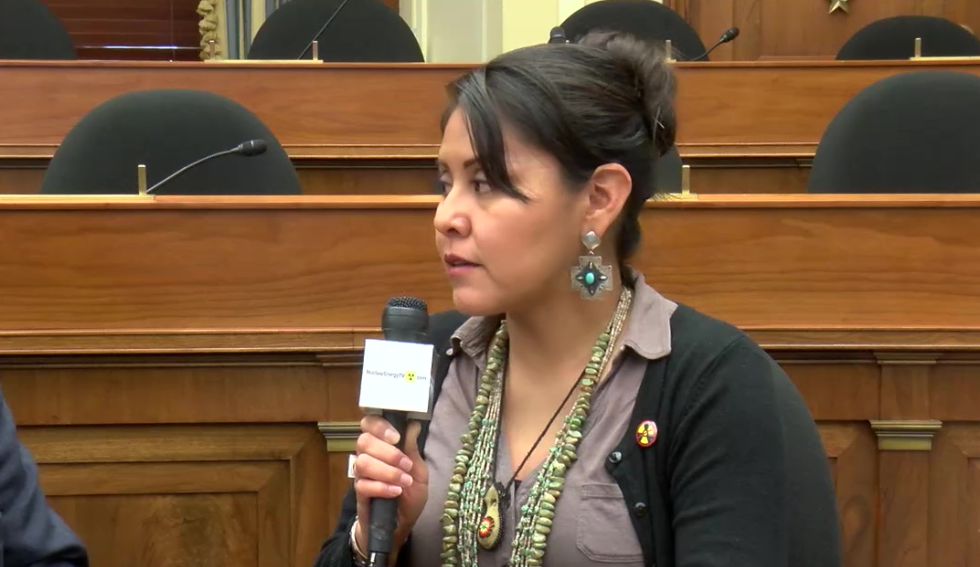
Morgan and other critics argue that nuclear energy, touted as a "clean" alternative, is misleading. “It’s the most expensive, complicated, dirtiest way to boil water,” she said, noting that while carbon emissions may be low at nuclear plants, they don’t account for the carbon footprint of construction and the disposal of toxic waste. Every year, billions go toward cleanup efforts, and Washington state alone has allocated $3 billion to Hanford’s decontamination this year.
M.V. Ramana, author of Nuclear is Not the Solution: The Folly of Atomic Power in the Age of Climate Change, stated that big tech companies like Amazon, Google, and Microsoft use nuclear projects to polish their public image, although he believes energy conservation should be prioritized. Meanwhile, Kelly Rae of Energy Northwest explains that Amazon’s funding will first support a two-year feasibility study, with plans to generate power exclusively for Amazon and, potentially, for broader use if additional partners join.
Breaking Down The Perspectives
Proponents Argue:
- Reduced Carbon Footprint: Nuclear energy is often seen as a clean alternative to fossil fuels.
- High Efficiency: Nuclear plants produce significantly more energy than renewables per unit, with a smaller land footprint.
- Energy Security: Unlike solar and wind, which are weather-dependent, nuclear power is stable and predictable, making it ideal for large-scale operations like Amazon’s data centers.
Opponents Argue:
- Environmental and Health Risks: Potential radioactive contamination remains a serious concern, with any leak impacting not just Washington but also the Columbia River basin and parts of Oregon.
- Waste Disposal: Nuclear reactors produce radioactive waste that remains hazardous for thousands of years, and secure, long-term disposal solutions are complex and costly.
- Economic Burden: While nuclear energy may create jobs, critics argue that renewable energy investments would yield more long-term jobs with fewer risks to health and the environment.
Cleanup Efforts at the Hanford Site
The Hanford Site cleanup is an ongoing effort, with millions of gallons of radioactive waste stored there from past operations. Progress has been made, but the site's complex contamination continues to require federal attention and resources. This context adds to the region’s hesitancy about new nuclear projects, as any issues at new reactors would intensify the burden on local infrastructure and emergency response capabilities.
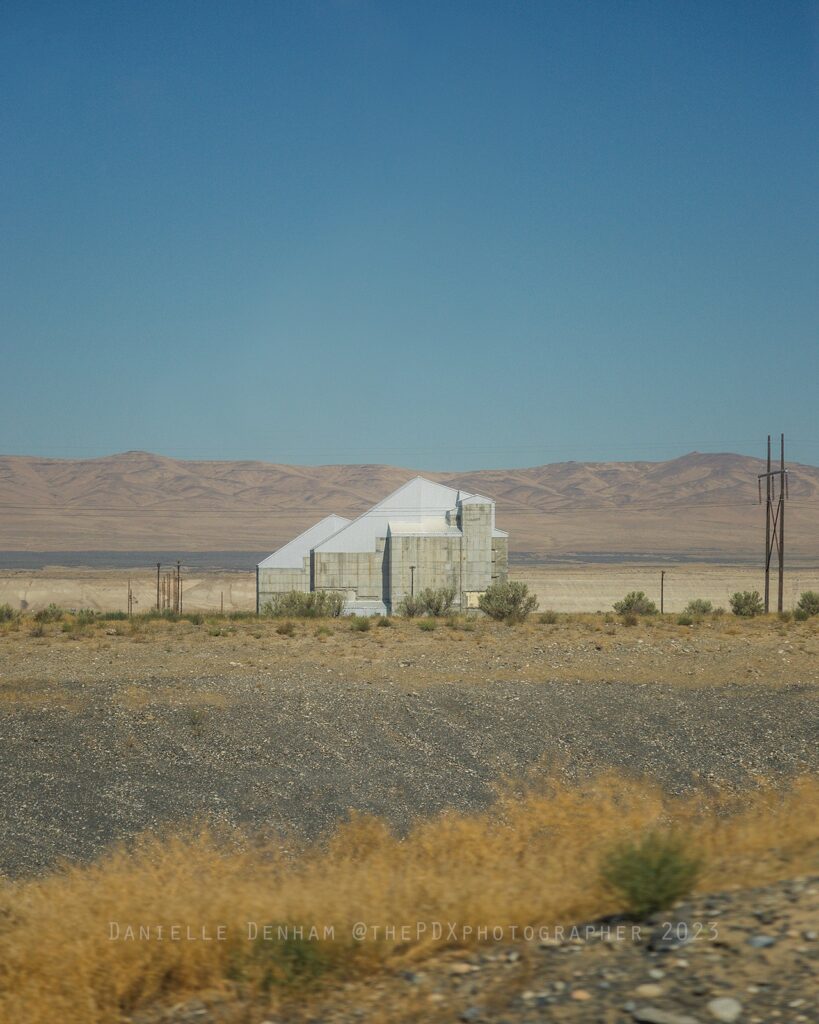
What’s Next?
As Amazon and Energy Northwest push forward, the project will face environmental assessments and regulatory scrutiny. Community input will likely shape how (or if) the project proceeds, as residents weigh the promise of jobs and cleaner energy against concerns about health, safety, and environmental risks. This development in nuclear energy could pave the way for high-tech industries to operate sustainably, but only if it meets the standards of safety and environmental protection.
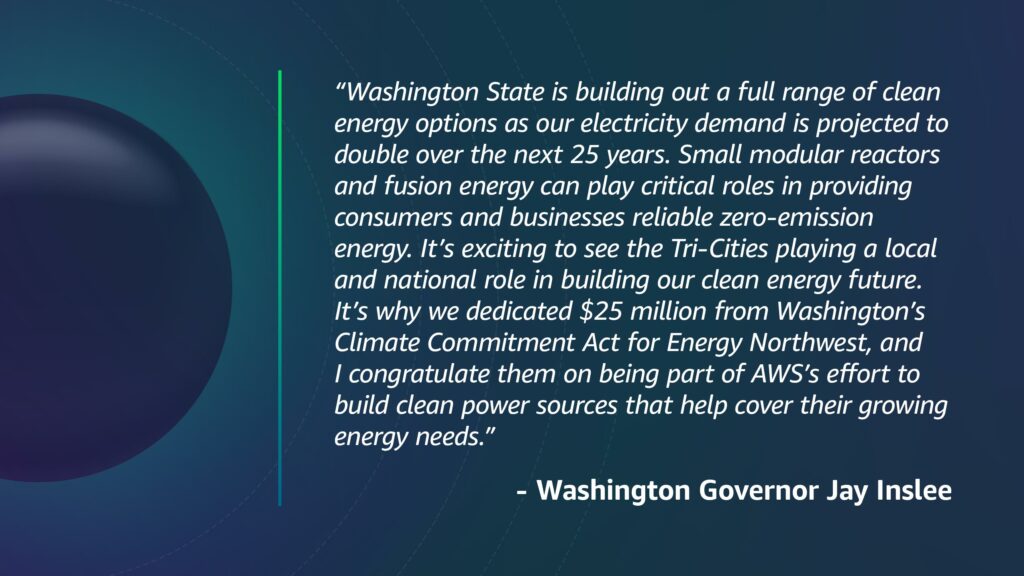
Amazon’s nuclear initiative in Washington could significantly impact the Pacific Northwest, potentially serving as a clean energy solution and boosting local economies. However, the stakes are high. Communities in Washington and Oregon are rightfully cautious, demanding transparency, safety assurances, and commitment to long-term environmental health. As the project progresses, the debate over nuclear power in the Northwest will continue to evolve, reflecting the region’s complex relationship with energy, technology, and environmental stewardship.
🌐 Sources
- energy-northwest.com - Amazon and Energy Northwest announce plans to develop...
- opb.org - Amazon plans to power Eastern Oregon data centers with...
- https://www.fox13seattle.com/news/wa-faces-energy-crisis
- https://www.aboutamazon.com/news/sustainability/amazon-nuclear-small-modular-reactor-net-carbon-zero

